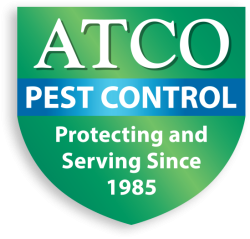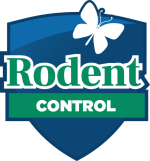- Ants
- Bed Bugs
- Crickets
- Earwigs
- Fire Ants
- Fleas
- Flies
- Grasshoppers
- Roaches
- Rodents
- Silverfish
- Spiders
- Stinging Insects
- Termites
- Ticks
- Voles
- Wildlife
You Want To Know More About Ants
DIY methods of ant control
While the most effective way to prevent or address an ant infestation is to call in pest control professionals, you can also try these do-it-yourself methods:
- Place natural repellents like coffee grounds, peppermint oil, and lemon in areas where ants are likely to enter. This will keep ants at bay, but will likely not resolve the source of an ant problem.
- Clean with a solution of equal parts water and distilled white vinegar, which ants dislike.
- Poison ants with bait stations or topical solutions from a home supply store. Ideally, the worker ants will take the poison back to the queen and eradicate the colony. However, in many cases, the workers die before they ever get back to the nest, so the poison doesn’t make it to the source of the problem.
What can you do to prevent ants from settling in your home?
Ants are driven by a search for food, water, and shelter. While it may be impossible to stop every ant, following some basic guidelines can help prevent an invasion:
- Avoid leaving food, dirty dishes, or food particles where ants can get to them. Though they aren’t very selective, most ants are drawn to sugary, fatty, or greasy foods.
- Use gap sealant or caulk to seal cracks and openings around windows, doors, and pipes so ants can’t enter your home.
- Remove debris, rotting logs, and lumber from your yard.
- Repair leaks and dry out moist areas in your home.
You Want To Know More About Bed Bugs
How can I treat bed bugs myself?
Bed bugs are among the most difficult pests to treat. Low-level bed bug infestations can be hard to detect and DIY methods aren’t as reliable. These parasitic insects are resistant to many insecticides and over-the-counter products and can require multiple treatments. Additionally, bed bugs resemble other insects so, if not properly identified and treated, they can continue to propagate.
Should you find bed bugs in your home, these do-it-yourself tips may help:
- Run clothing, bedding, and other smaller soft items through a dryer for at least half an hour at the highest setting. Afterward, seal them in plastic bags until the entire home has been treated.
- Heat your home to at least 120°F for 90 minutes to kill bugs and eggs on items that won’t fit in a dryer.
- Purchase do-it-yourself kits that contain mattress encasements and products designed to treat bed bugs.
Self-administered foggers are not an effective form of treatment when used independently as they don’t reach into the areas bed bugs hide. They may also force the bugs to migrate to another area of your home, spreading the infestation. Drying agents called desiccants can be effective, though they may take months to work. Both foggers and desiccants should be used with caution as they may pose health risks to people and pets.
The best way to treat a bed bug problem is to hire a pest control professional who will utilize integrated pest management methods to address the issue.
How do you prevent bed bugs?
Bed bugs don’t discriminate; they can be found wherever they have access to a host. However, some preventative measures can keep your home protected:
- Remove clutter, reducing the number of places bed bugs can hide.
- Vacuum regularly – even daily – to pick up eggs and live bugs.
- Protect mattresses, box springs, and pillows with encasements designed specifically to keep bugs out.
- Seal potential areas of entry like cracks and crevices using caulk, foam sealant, or physical barriers.
- Inspect any furniture, clothing, or bedding for infestation before bringing them into your home.
- Avoid contact with others’ belongings.
- Check your mattress and box spring regularly for signs of bed bugs.
- When traveling, place luggage in the bathroom before inspecting the room for bed bugs.
- Implement bed bug monitoring devices which are designed to identify their presence.
You Want To Know More About Crickets
DIY Cricket Treatment
Once crickets find their way into your home they can be difficult to eliminate. While you may be able to stop adults or nymphs with do-it-yourself treatments, they don’t address any eggs that are hiding. The best approach to preventing or treating a cricket problem is to work with professional exterminators who are experts at keeping these insects outside where they belong.
Cricket Prevention Tips
Crickets become problematic when they enter your home. These preventive measures will help keep them outdoors:
- Seal cracks in doors, windows, baseboards, and other potential entry points.
- Repair or add screens to windows and vents.
- Keep yard debris, leaves, dead grass, and other organic materials away from your home’s foundation.
- Address moisture problems or leaky pipes around your home.
- Replace outdoor lights with yellow insect-repelling lights.
- Use insecticides to create an exterior barrier around your house.
You Want To Know More About Earwigs
DIY Earwig Treatment
Earwigs found indoors can be swept up and thrown away. While this resolves the immediate issue, it does not address eggs and nymphs. Do-it-yourself insecticide treatments can be used both inside and out, but if not administered properly, they have the potential to drive earwigs into untreated areas in your home. The most effective and safe way to eliminate earwigs is to work with a pest control professional.
Earwig Prevention Tips
Earwigs are nuisance pests that can invade your home and yard. These preventative techniques may help avoid or reduce the presence of earwigs:
- Keep debris, piles of leaves, grass cuttings, compost, and other vegetation away from your house.
- Seal cracks that may provide entry points into your home.
- Replace white light bulbs with yellow ones that don’t attract insects.
- Address pooling water and moisture issues in and around your home.
- Install bird feeders to attract birds that feed on earwigs.
- Treat your home with insecticides designed to prevent or kill earwigs.
You Want To Know More About Fire Ants
Can I treat fire ants myself?
As noted, fire ants are extremely territorial; they will attack if threatened. Trying to treat a fire ant mound with granular pesticides with a do-it-yourself method not only may be ineffective, but this also puts you in danger of being attacked. If you spot a fire ant mound on your property, the best course of action is to contact a pest control professional who is trained to safely identify, treat and eliminate fire ant colonies.
You Want To Know More About Fleas
DIY Flea Treatment
Once you’ve spotted a flea, act quickly! The presence of a live flea means there are likely eggs and pupae nearby. Most do-it-yourself solutions target adult fleas but do not prevent those in earlier stages from developing. To minimize the spread of fleas, follow the preventative steps we’ve outlined. However, a flea problem can be difficult to control, so your best bet is to hire a professional exterminator.
Flea Prevention Tips
Fleas multiply quickly, so the best way to manage an infestation is to stop it before it happens. These guidelines can help keep your family, pets, and home free of fleas:
- Apply a monthly topical flea-repelling treatment to your pet, as prescribed by a veterinarian.
- Regularly vacuum your home, especially areas where fleas may be hiding.
- Wash pet bedding in hot water.
- Keep animals away from areas suspected or known to be flea-infested.
- Bathe pets as directed by your veterinarian.
- Treat your yard with insecticides designed to kill fleas. (Better yet, hire a pest control professional to do this for you!)
You Want To Know More About Flies
How To Treat Flies
Many off-the-shelf DIY products are designed to target the variety of fly species. Use these remedies with caution, as they can be harmful to your family and pets if applied incorrectly. Do-it-yourself solutions often only treat adult populations; therefore, you should plan on re-treating as eggs hatch and larvae develop. If you experience a problem with flying insects, a pest control professional can identify the type of fly and treat it appropriately at all stages of its lifecycle.
How to Prevent Flies
Flies are everywhere! While it will be difficult to avoid them entirely, these guidelines can help reduce your interaction with these pests:
- Install fine mesh screens on windows and doors or keep doors and windows shut.
- Clean up food particles, pet waste, and spilled or spoiled food and beverages immediately.
- Secure lids on trash bins and clean up trash overflow.
- Maintain a clean home.
- Cover food being prepared or eaten outdoors.
You Want To Know More About Grasshoppers
DIY Treatment
If voracious grasshoppers have invaded your garden, it can feel like your plants are being damaged and consumed everywhere you look. Luckily, there are several natural ways to bring your garden back to life and protect your plants from further harm. Here are some of our favorite home remedies:
- Dust Your Plants With Flour – this method is a quick and convenient way to get rid of grasshoppers destroying your plants. Flour causes grasshoppers to starve by gumming their mouths and preventing them from being able to eat. Be sure to use all-purpose flour for the best results and simply sprinkle a thin layer over any affected plants.
- Apple Cider Vinegar – as a simple pantry item with so many beneficial uses, it’s no surprise that apple cider vinegar is also a great solution for fighting off grasshoppers. We recommend placing disposable cups or open freezer bags filled halfway with vinegar and placing them throughout your garden beds. Grasshoppers are immediately drawn to the solution and drown in the vinegar.
- Introduce Natural Predators – one of the best ways to tackle an overactive grasshopper population for the long-term is by introducing some of their natural predators to your landscape. In particular, praying mantises, birds, cats, and chickens are some of the most effective predators when it comes to eliminating your grasshopper problems.
Steps to Prevent Them
The best way to avoid having your landscape ravaged by grasshoppers is by taking measures to keep them from wanting to inhabit your garden at all. Here are the grasshopper prevention methods we recommend the most:
- Garlic Spray is an easy and inexpensive way to deter grasshoppers from feeding off your plants. You can either make your own solution at home by blending two cloves combining with water in a spray bottle – or a purchase a ready-made solution here.
- Adding grasshopper-repelling plants to your landscape is one of the best ways to prevent them from inhabiting your yard in the first place. Plants like the Chinese brake fern, horehound, calendula, and cilantro naturally deter grasshoppers from your garden due to their strong scent and off-putting taste. Not only will these plants help enhance the bounty of your landscape, but they’ll also keep a variety of menacing bugs from feeding off your garden!
You Want To Know More About Roaches
Tips for DIY methods of roach control
While there are many do-it-yourself treatments sold – like foggers, bombs, or powder containing boric acid – they can be ineffective if not administered correctly. These DIY treatments may disperse rather than kill roaches, driving them into areas they might not have previously been. Their contents can also be highly toxic and harmful to other humans and pets in your home. The best way to address a roach infestation is to contact a pest control professional who can identify the type of roach and the most effective approach to exterminate them.
What can you do to prevent roaches?
Roaches are constantly on the hunt for food, water, warmth, and shelter. When you see one cockroach, you can be sure there are many more lurking. While it may be impossible to eliminate all roaches from your property, following some basic guidelines will help make it less attractive to them:
- Keep your home clean. Roaches thrive in unsanitary conditions.
- Repair water leaks and dry wet items and areas.
- Seal cracks, holes, and crevices where roaches can enter and hide.
- Store food in airtight containers and clean food preparation areas.
- Clear clutter and dispose of old newspapers and boxes.
- Avoid leaving clothes in piles.
- Remove debris from around your home.
- Keep crawl spaces, basements, and areas under porches dry and well-ventilated.
- Change exterior lights to yellow bug lights, which are designed to not attract pests.
You Want To Know More About Rodents
DIY methods of rodent control
Do-it-yourself baits and traps may attract rodent intruders. However, if not properly administered, they can also be harmful to people and pets. A pest control professional can evaluate your property to determine how to best prevent and treat pesky rodents.
Prevention
Rodents are most harmful when they find their way into your home. Preventative measures you can take to keep your home free of rodents include:
- Blocking potential entry and exit points
- Keeping your home and its surroundings clean
- Storing food in airtight container
- Removing clutter and debris
- Pruning trees and shrubs away from your home
You Want To Know More About Silverfish
DIY Silverfish Treatments
Should you identify the presence of silverfish in your home, these do-it-yourself solutions may give you some relief:
- Trap silverfish using a glass jar. Place a starchy food like bread inside the jar to attract the silverfish. Wrap the outside of the jar with masking tape to give the pest traction to climb. Once inside, the silverfish cannot climb back out of the slick glass walls. This approach will remove silverfish, but not their eggs or those insects who don’t climb into the jar.
- Use purchased baits. Baits attract silverfish to a sticky surface which prevents them from moving. Like traps, baits do not treat the cause of a silverfish infestation.
- Apply diatomaceous earth. This desiccant removes moisture, ultimately drying up the silverfish. While not toxic, diatomaceous earth is a lung irritant and should be handled very carefully.
- Use chemical treatments. Powders and sprays containing boric acid, pyrethrins, or pyrethroids are effective at repelling silverfish. However, these compounds should not be used in areas where pets or children are likely to come into contact with them.
Often, destruction done by silverfish is attributed to moths or other insects, allowing the real culprit to continue to reproduce until discovered. A professional pest control service can discern the source of damage and treat appropriately and effectively.
How to Prevent Silverfish
Like most insects, silverfish seek out a comfortable environment with plentiful food sources. The following measures can help to decrease the likelihood of a silverfish infestation:
- Reduce the humidity in your home by repairing water leaks, ventilating moist areas, or using a dehumidifier.
- Clean, vacuum, and mop regularly to remove food scraps, mold, paper, and silverfish eggs. Don’t overlook the interiors of cabinets, baseboards, and areas behind the stove and refrigerator.
- Store food in airtight containers.
- Avoid leaving out uneaten pet food.
- Fill cracks that could serve as potential entry points with caulk or sealant.
- Repair wallpaper that has pulled away from the wall.
- Place important papers and photographs in sealed containers.
- Avoid creating stacks of newspapers or magazines.
You Want To Know More About Spiders
DIY methods
Do-it-yourself spider treatments can be ineffective and potentially toxic to people and pets if not administered correctly. With so many varieties, it can be difficult to determine whether a spider is potentially harmful or helpful. The best way to prevent or address a spider infestation is to contact a pest control professional who can identify the type of spider and the most effective approach to treat them.
Spider prevention
Spiders are ubiquitous and hard to eliminate completely. However, preventative measures can be taken to minimize spiders in and around your home:
- Eliminate or reduce clutter.
- Exterminate insects that might attract spiders.
- Seal off possible points of entry.
- Turn off outdoor lights.
- Minimize outdoor debris and other potential hiding areas.
- Use natural spider-repellent oils like peppermint, citrus, eucalyptus, cinnamon, cloves, or tea-tree.
- Plant herbs – including basil, lemongrass, mint, rosemary, and lavender – that keep spiders away.
You Want To Know More About Stinging Insects
DIY Methods
Insecticide sprays designed for bees, wasps, and hornets can be effective when they make contact with the insect. However, they can also irritate a nest, causing it to become more active. Also, bees are important pollinators that help our crops grow, but they are on the decline worldwide. It is advisable not to kill the bees if possible. Because of the high degree of danger associated with stings, the best way to handle a bee, wasp, or hornet issue is to contact a licensed pest professional who can remove or relocate the nest.
Stinging Insect Prevention
Bees, wasps, and hornets can be good for the environment but, in large numbers, they may introduce risk to your family and property. The simple guidelines below can help you avoid a bee or wasp infestation or sting:
- Do not wear yellow or white outdoors as these colors attract insects.
- Ensure screens on windows are secure and tight.
- Inspect your property regularly for hives or nests.
- Do not engage with bees, wasps, or hornets.
You Want To Know More About Termites
DIY Termite Treatments
Do-it-yourself insecticides and baits are available but can be ineffective if not applied correctly. Their contents can also be harmful to people and pets. The best way to prevent termites is to contact a pest control professional who specializes in termite treatment.
Termite Prevention Tips
It can take a few years for termites to become established in a home, making them hard to detect until it’s too late. Some preventive techniques to deter termites include:
- Removing rotted wood from your property
- Not allowing wood on your home to come into contact with soil
- Eliminating standing water or sources of moisture around structures
- Pre-treating building sites with termite repellents
You Want To Know More About Ticks
DIY Tick Treatment
Should you find a tick on a person or animal, the most effective way to remove it is by using pointy tweezers. Using the tweezers, grab the tick’s head as close as possible to the host’s skin and pull. This will lessen the potential for harmful germs to be forced into the host. Wash the affected area with soap and water or alcohol and apply an antibiotic cream. If you or your pet develops any unusual symptoms, visit a doctor or veterinarian. A professional tick treatment is a powerful option for tick control.
Tick Prevention Tips
Unless you spend all your time indoors, you are likely to encounter an area in which ticks live. The following guidelines can help protect you from becoming a host to these parasites:
- Have your yard professionally treated for ticks.
- Apply a tick repellent that contains 25%-50% DEET.
- Wear clothes treated with permethrin.
- Tuck in loose clothing, like pant legs or oversized shirts.
- Run clothes worn outside through a dryer cycle.
- After being outside, check your body and hair thoroughly for ticks.
- You should also regularly check pets, whether they live inside or out, for ticks.
You Want To Know More About Voles
If you’re looking for some natural home remedies to prevent voles from causing further damage to your garden, here are some of the best DIY methods:
- Garlic: This eco- and family-friendly solution is not only inexpensive, but it also has long-lasting effects. Given the strong odor put off by garlic cloves, voles are deterred from coming near anything giving off its distinct smell. Simply place a clove around the plants most susceptible to vole damage in your yard and they will refrain from coming near any trace of garlic’s odor.
- Wire Mesh: This is a great method for anyone looking for a way to keep voles out for a longer duration of time. Wire mesh can easily be cut to size and placed around the roots of your plants to prevent voles from burrowing into the soil. Once they are unable to feed off the vegetation in your garden, they will go elsewhere in search of more favorable conditions.
- Cayenne Pepper: While great for cooking, this hot and spicy ingredient is highly irritating to voles trying to feed off your garden. Cayenne pepper is an easy and natural way to keep voles away from your plants. Add a few teaspoons of powdered cayenne pepper to a spray bottle filled with water and apply as needed around areas of your yard frequented by voles.
The best way to keep your garden free from voles is by taking measures to prevent them from causing damage in the first place. Here are some of the top prevention steps we recommend:
- Cultivate your soil regularly and add a layer of gravel beneath the surface. Both methods are a great way to not only destroy any existing tunnels or burrows created by voles but also prevent them from returning due to their inability to dig through gravel.
- Add vole-repelling plants to the mix in your garden. Plants like hellebore, tulips, and rosemary function as natural deterrents for voles looking to feed off your vegetation. Simply add these plants amongst the variety of your garden and voles will stay far away!
- Fence in your garden to prevent voles from breaching your vegetation. This is a simple and effective way to keep them from entering your garden in the first place. You can also install an underground fence about two feet deep around the barrier for a more discreet form of protection.
You Want To Know More About Wildlife
Tips for DIY methods of wildlife control
Coming soon.
What can you do to prevent wildlife problems?
Coming soon.
You Want To Know More About Not Sure/Not Listed
Not Sure/Not Listed
Not Sure/Not Listed





